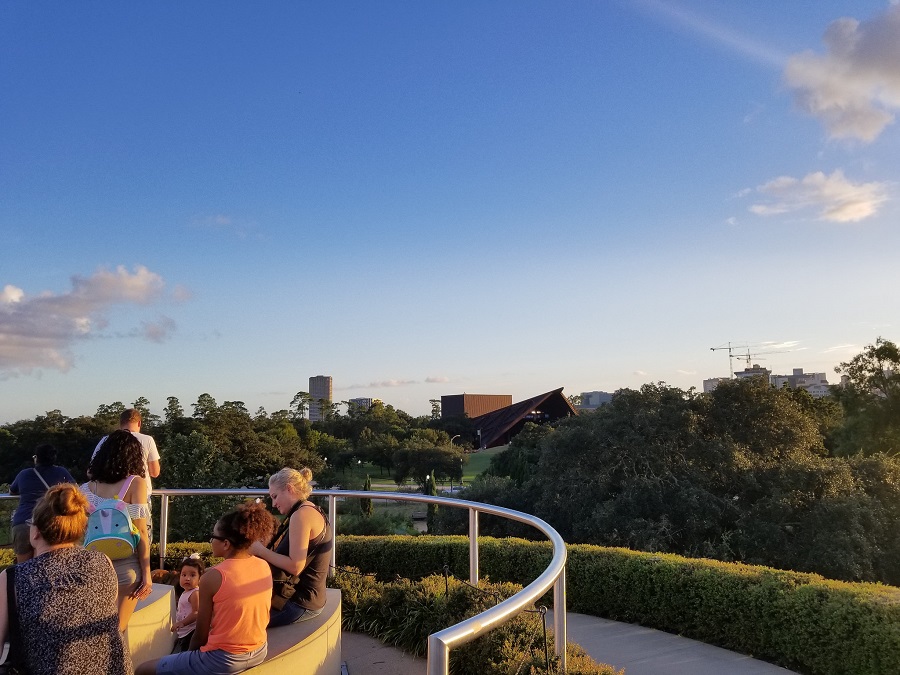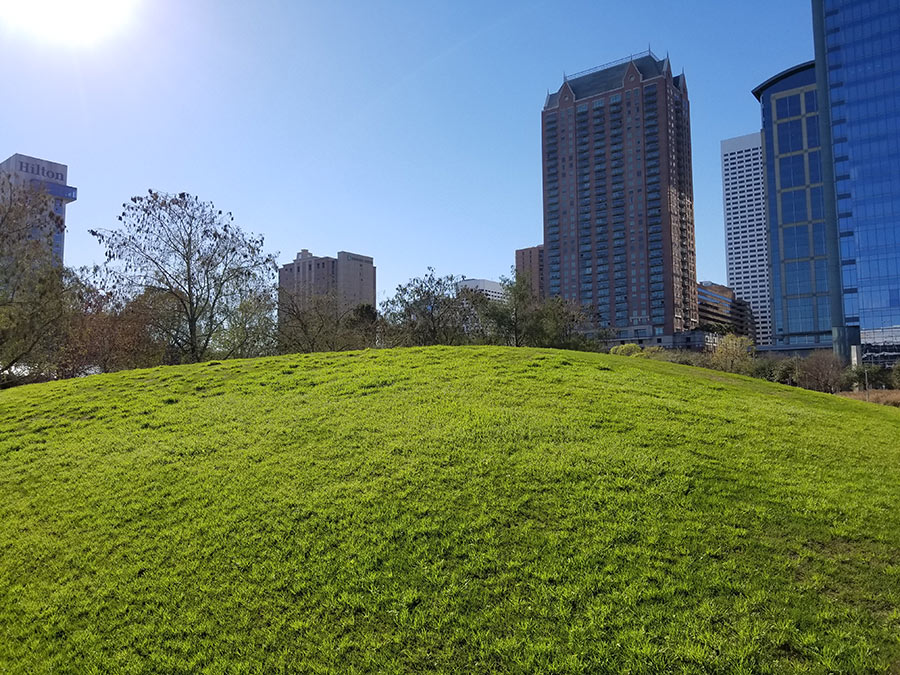
- 85 Apartment Complexes Planned Across Houston, According to ApartmentData.com [Houston Chronicle]
- Costco Looking for Up to 1M SF in Houston for Distribution Space [HBJ ($)]
- Where the Next Industrial Market Might Be After the Houston Ship Channel [Bisnow]
- The Most Expensive Lots for New Home Construction in Houston [HBJ ($)]
- Inside the Newly Renovated 5 Houston Center [HBJ ($)]
- CityCentre Inks 4 New Tenants [Bisnow]
- Chinese Hot Pot Chain Spice World Coming to Asiatown [Eater Houston]
- The Roastery Coffee Kitchen Opening Stand-Alone Locations in Select Houston H-E-Bs [Houston Chronicle]
- City Spending on Drainage Projects Has Dropped Since Drainage Fee Went into Effect [abc13]
- Is Houston Doing Enough To Be Resilient? [The Urban Edge]
Photo of The Mount at McGovern Centennial Gardens: Marc Longoria via Swamplot Flickr Pool
Headlines





Re: City Spending on Drainage Projects Has Dropped Since Drainage Fee Went into Effect
Here is a bizarre idea …. make the DEVELOPERS (hence their buyers) pay for the drainage issues created by their development projects, All of it including the downstream consequences. If you want to build it, pay of ALL of it.
I don’t get the impression that the Bisnow writer really understands industrial real estate. It is a highly segmented market. It isn’t appropriate at all to talk about land along the ship channel and then to relate that to anything along or near any segment of the Grand Parkway. The factors underlying demand as well as the types of structures, their function, valuation, and tenancy are going to be very different.
.
There is plenty of industrial land which is reasonably proximate to the Houston Ship Channel. Plenty. No shortage.
.
Where access to deepwater is concerned though, yes, there isn’t much vacant developable land. There also isn’t a tremendous level of demand. Most petrochemical plants can be and have been expanded on land that they already occupy. Big new facilities are more likely to go to Freeport or Corpus Christi, which have better, deeper, less trafficked ports.
@ city cynic: Most of the City of Houston is already built out, and most new development that occurs in watersheds that impact property within the City of Houston is in unincorporated Harris County. The time for City to begin making developers pay for flood control was in the 1920s as development began occurring at the scale of the subdivision. The problem with your proposal is that the City has not got a time machine. More stringent development rules will not not ameliorate flood conxerns in already-developed communities.
.
Furthermore…the rules you suggest that should be implemented already exist. In fact, given the soils that are typical in Houston, the existing rules — even in Harris County — are stronger than that! On-site stormwater detention requirements provide upstream protection that exceeds the capacity of the natural landscape to absorb or slow runoff. That doesn’t mean that the rules couldn’t or shouldn’t be strength further, but…they’re stronger than you or most people think.
The reduction in city spending on drainage project is because the initial stage of the drainage fee was to payoff existing infrastructure bond debt. Then from that point forward infrastructure projects would move forward with pay-as-you-go.
The news story was disingenuous as best. Prop A would also help keep a lock box on the drainage funds so that in only supports infrastructure projects.